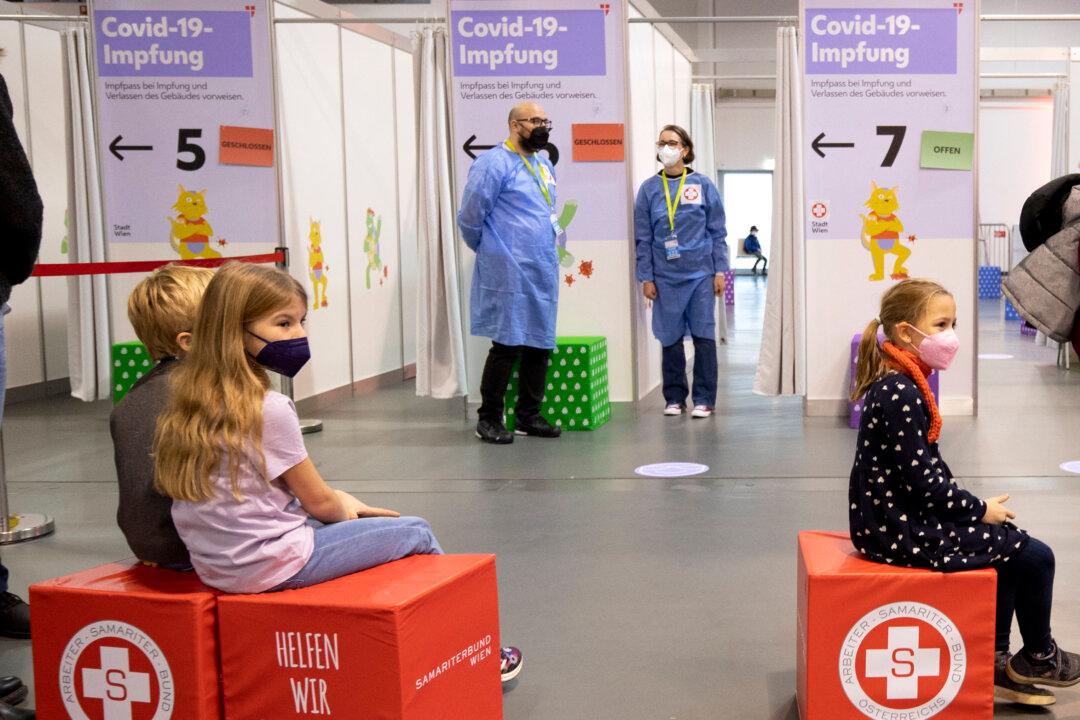The European Union’s drug regulator on Thursday recommended expanding the use of Pfizer-BioNTech’s COVID-19 vaccine for children from 5 to 11 years old.
The decision, announced by the European Medicines Agency (EMA), cited Pfizer’s clinical trial data, which the company says indicates a 90.7 percent efficacy in preventing illness in the age group.





